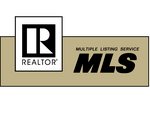When selling a home, one of the most important steps in the process is negotiating the home repair proposal after the inspection.
Last month, we looked at the home inspection and home repair from the buyers’ perspective, so this month we want to take a look at it from the sellers’ angle. Real estate agents aren’t home inspectors, and we often don’t know everything that might need fixing in a property. If you as the owner of the property know of and share a particular issue with the agent, then of course it is our job to make sure that is disclosed as part of the listing. In fact, one of the first things I do in preparing a property to list is to provide a disclosure form as part of a set of required documents giving us permission to sale their property. This property disclosure form lists out all the items in your home or cabin that you’re aware of about the property – age of the roof, any updates or upgrades to the home, any conditions that the law requires for you to share with buyers about, etc. If you haven’t lived in the home for several years, you may choose to fill out an exemption form instead. This is often the case with vacation and second homes that are on a rental program. You’re just not going to know everything about the condition of the property if you aren’t actively living in the home. Even when you do live there full-time, you may not be aware of potential problems that your buyers could end up being responsible for if they closed on the property without discovering it beforehand. So it’s in their best interest as the buyers to have a home inspection done.
The home inspector will:
- test the plumbing;
- test the electric outlets;
- inspect the crawlspace for possible cracks or mold;
- inspect the fireplace;
- inspect the home exterior for signs of wood destroying insect damage; and
- look for signs of water damage or problems along the gutters and on the roof that may not be noticeable to the untrained eye.
The home repair proposal
Once the inspection is completed, the buyer will identify the items that matter the most to them and coordinate with their agent – if they have one – to put them into a home repair proposal for you to consider. As a seller, it’s important not to panic when you see the repair request items. A home inspector is hired to find every potential issue in the home so that the buyer can make the most informed decision possible. Most good home inspectors will seek out problems and potential challenges so that the buyers know as much possible about what’s going on with the house before they buy it. It’s important for you to work with your agent to help you determine the best response based on your situation. If you have the resources to make the requested home repairs, that’s often the best choice. Or if you can’t do them all, pick the ones that are the most important and offer to do those. Another option is that you could negotiate a lower sales price to allow the buyers to fix the home repair items on the home repair list themselves. Your real estate agent should be able to negotiate the home repairs on your behalf and, when needed, help you find people who can do the work to fix those items so you can get accurate estimates in case the owner chooses to reduce the price instead.
Keep in mind that simply refusing to address the requested home repair proposal items could mean the buyers will walk away, and if the items are significant, you will have the same challenge with the next buyer who comes along if you don’t work out a way to fix the items. Of course, the buyers have the choice to walk away after a home inspection is completed if they don’t like the report, so it’s sometimes good to ask your agent to follow up to see if you can find out what made them decide not to buy your home. Perhaps it’s something you can fix before the next offer comes in so it doesn’t end up being a challenge to overcome with a new buyer on the next home repair list.







